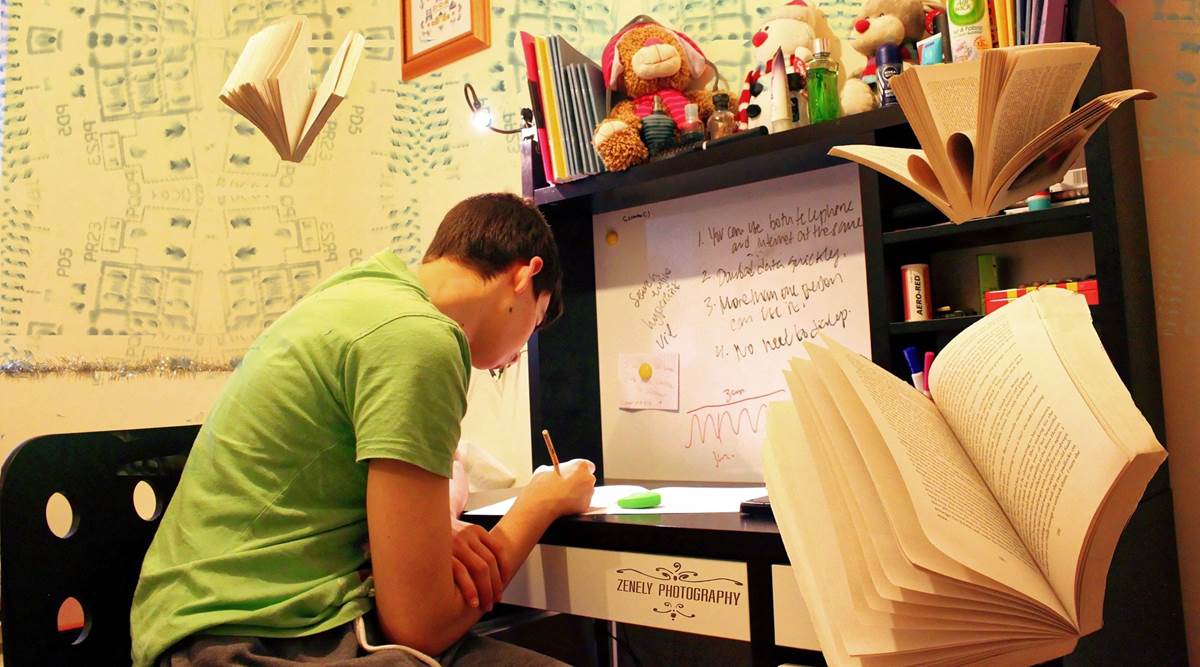The adolescent faces various threats right now. Their biggest support, their friends, have been taken away.

By Nooraa Sinha
The pandemic has created a world where our health is threatened by disease and our emotional well-being is challenged because we are socially-distanced from most people that we would typically interact with. These sudden and continued changes have caused stress and anxiety at different levels for different people.
While each one of us has been trying to cope and pull through tough times, our teenagers have been facing their own set of challenges as they go through emotional and hormonal changes within the confines of their homes. This unprecedented situation may have led to bottled up emotions, perhaps causing unnecessary and avoidable confrontations between loved ones. The need for adults to retain calm in the house by calling for peace is now more than ever! The first step in this process is to understand what a teenager may be going through.
Imagine yourself walking. You see someone raise their arm, throw something at you! When confronted with a stressful or threatening situation, our brain directs our body to respond to the stressor in three ways: fight, flight or freeze. You can fight it by trying to catch it or chase the person, freeze and do nothing or protect yourself by taking an avoidant action like ducking.
The adolescent faces various threats right now. Their biggest support, their friends, have been taken away. Privacy, which they value deeply, is threatened by almost constant monitoring at home, or an attempt at the same. Online school has increased screen time, making joyful activities — like time with friends and games — subjected to increased scrutiny. They may also be worrying about their and their family’s health.
Their brain responds to these constant threats in some of the following ways: showing aggressive and impulsive behavior (fight), avoiding and withdrawing (freeze), or panicking and being over busy (flight behavior). They are feeling threatened most of the time and need to feel safe and relaxed. Now let’s understand what makes them struggle.
A fully-developed adult brain has more synaptic connections between the part of the brain called the prefrontal cortex (which assesses risk and emotionally regulates) and the limbic system (that alerts the flight, freeze or flee response). Adults are able to calm and relax themselves better by sending out a relaxation response. Adolescents struggle as their brain is still developing and hasn’t reached that maturity; the prefrontal cortex is developing till the age of 21-25.
Here are some ways that parents can adopt to create safety and stability that will help adolescents to regulate themselves and respond positively in relationships.
Acknowledging feelings of threat, helplessness and frustration: This will make them feel understood and safe. Try and use statements like “missing school must be a terrible feeling” versus “so what, all your friends are going through the same thing”. The former sentence connects to their pain, the latter dismisses what they feel.
Guiding them towards self-soothing behaviors: Once you have acknowledged their overwhelming feelings, suggest self-soothing behaviors — reaching out to a friend, doing something they enjoy, like exercising, drinking something warm, a head massage, (if they allow), deep breathing.
Create a comfortable time and space for emotional check-ins: At least once a week, talk to your adolescent about how they are feeling. Emotional check-ins make them feel they matter. Side by side conversations, walks, exercising together, cooking, watching television, work better than face-to-face ones. Sharing your vulnerabilities (without lecturing) could initiate some conversations. As you try and keep communication open, please do not get put out by monosyllables — that’s normal adolescent communication!
At school, we have ‘circle time’ with students where these strategies are practised. We support students to feel safe, emotionally connected and, therefore, more engaged in learning as they deal with the pandemic and online schooling.
Also having recognised that parenting in the pandemic has not been easy, our school has been holding regular effective parenting sessions where counsellors listen to parents, discuss these challenges and brainstorm strategies for and with parents to cover up the gaps in communication with teenagers.
To each parent reading this, you are a great parent. You are working on being warm, supportive, conscious and compassionate even as you struggle. Your adolescent is likely to respond positively as you provide love, stability and safety.
(The writer is Head of Department, Counselling (Psychology), Shiv Nadar School, Noida)
Source: Read Full Article
